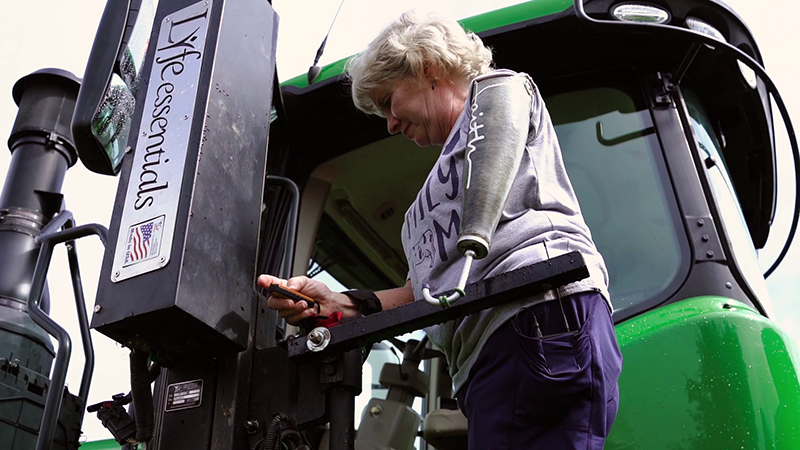Indiana AgrAbility farmer to speak at 2023 AgrAbility National Training Workshop
The National AgrAbility Project, housed at Purdue University’s Breaking New Ground Resource Center, invites farmers, ranchers and agriculture professionals to the 2023 AgrAbility National Training Workshop (NTW) to address issues of disability in agriculture.
The workshop will take place March 20-23 at the Centennial Hotel in Spokane, Washington. Early bird pricing ends on Feb. 17, with registration ending on March 13. The complete event schedule, pricing and hotel information are available online.
“The 2023 NTW will be held in conjunction with the Western Regional Agricultural Stress Assistance Network, so there will be a special focus on the mental and behavioral health needs of farmers and ranchers,” said NAP manager Paul Jones. “We’re also excited to have one of our Indiana AgrAbility clients, Laurie Hayn, as the keynote speaker. She has overcome severe disabilities to remain productive and positive.”
Hayn lost her left arm and leg in a combine entanglement in 2018. She will share how the AgrAbility program helped her continue farming after the accident. A preview of her inspirational story can be viewed online. Additional event breakout sessions will cover topics such as farm stress, assistive agriculture technology, support for veteran and beginning farmers, and more. Attendees will have the opportunity to tour sites that include a beef cattle operation, a family-run farm and the Washington State University Wilke Research Farm.
Traditionally known for helping those with physical disabilities gain access to assistive technologies, AgrAbility continues to evolve to meet the needs of underserved populations, including but not limited to veterans and caregivers. Connect with AgrAbility on social media to learn the latest about assistive technologies, resources, safety tips, information, and more.
- Facebook: @National AgrAbility Project
- Twitter: @NatlAgrAbility
First authorized in the 1990 Farm Bill (with funding appropriations beginning in 1991), AgrAbility is a grant-funded program through the U.S. Department of Agriculture’s National Institute of Food and Agriculture. Each project must involve a collaboration between a land-grant university and at least one non-profit disability services organization.







